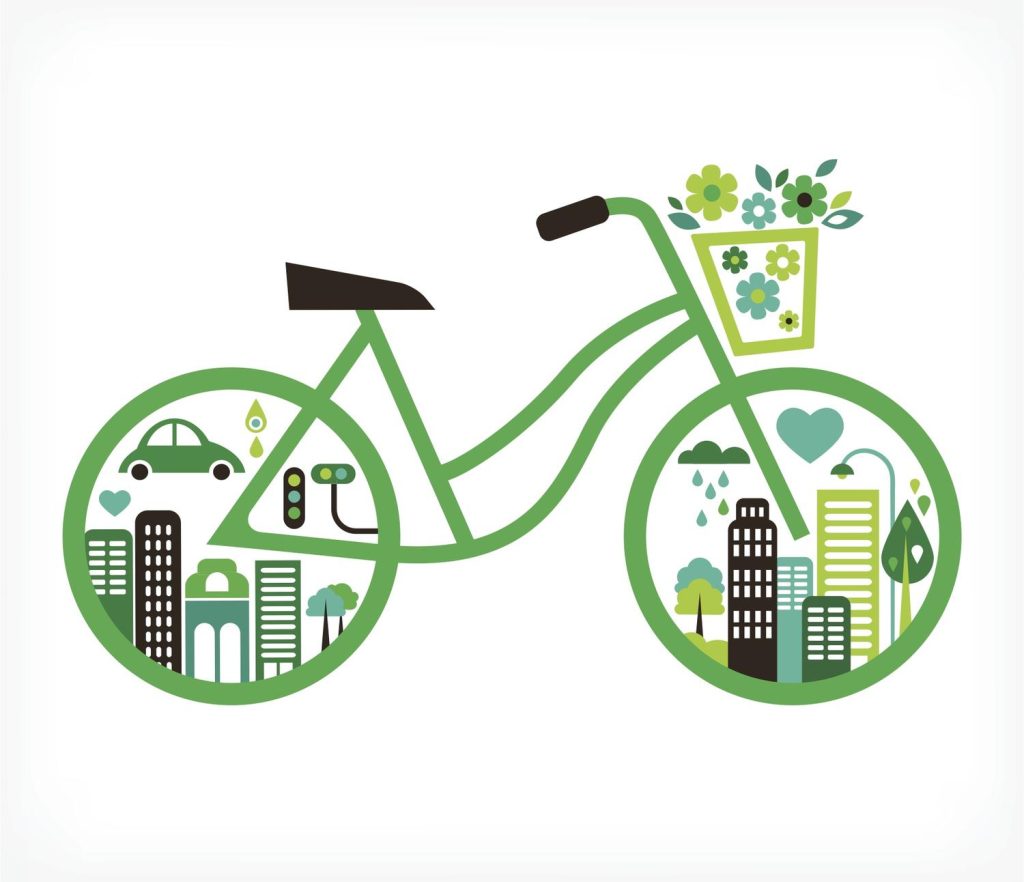What happens when you increase your walking or cycling? Changing our travel habits can have a surprisingly large impact on environmental protection. Therefore, here are five ways that increasing walking and cycling can help save the world.
Does riding a bicycle increase air pollution?
Of course not.
Air pollution is caused by a multitude of factors, one of which is driving your automobile. Each time a person selects a bicycle over a car, they contribute to the reduction of air pollution in their city and municipality. There are a variety of ways that bicycling rather than driving may help reduce pollution, and if you understand why, you’ll be much more inclined to select your bike over your vehicle.
The primary reason riding helps minimize air pollution is that it is a zero-emission activity. Over the course of its life, a typical automobile generates around 1.3 billion cubic yards of contaminated air. Air pollution is also caused by worn tire particles, brake waste, and emissions from the plastic and other components in the automobile. Bikes, on the other hand, do not offer this issue, and choosing to ride rather than drive is an extremely effective strategy to reduce the pollution you cause during the day.
Second, building a bike consumes far less energy than making a car. Factories require energy to manufacture their goods, which results in emissions into the air. When you buy a bike, you are choosing an alternative that produced less emissions during its manufacture. According to estimates, each automobile created generates several tons of garbage and roughly 1.2 billion cubic yards of pollutants. The process of painting automobiles releases around 40 million pounds of pollutants into the atmosphere.
Finally, motorcycles work without the use of engine oil or batteries. Not only does the manufacture of such products contribute to pollution, but they also contribute to pollution when they are used and disposed away. Bikes are a clean and environmentally friendly way to solve the problem.
Even when hybrid vehicles are included, bicycles remain more ecologically beneficial. Hybrid automobiles are still far bigger than bicycles and require a battery, which is known to contain carcinogens. Hybrid vehicles frequently use nickel batteries, and nickel mining also adds to air pollution. Additionally, hybrids require gasoline to operate, whereas bicycles do not.
When you pick a bike over a car, you are less likely to go further, as riding a bike over large distances is difficult. When you’re in a car, it’s easy to go further from home, which adds to the pollution already present in the air.
Air pollution may result in a variety of health problems, ranging from cancer to asthma to skin problems. When you contribute to reducing air pollution by riding your bike instead of driving, you significantly reduce air pollution in your town. Because bikes run on muscular power rather than petroleum, you can go around without causing harm to the environment. Bikes are significantly less expensive than automobiles and are an excellent option for someone who lives close to their office and can easily access shopping and other chores. If you spend your days indoor, perhaps the best way to stay away from air pollution is using the best air purifiers.
Does cycling reduce air pollution?
Reduces air pollution
The word “air pollution” refers to the microscopic particles, chemicals, and gases emitted into the atmosphere. Motorized road transport contributes to air pollution due to its reliance on fossil fuels. Carbon dioxide (CO2), nitrogen dioxide (NO2), and particulate particles are all examples of this.
Each of these factors has an effect on both our health and the health of the planet. CO2, for instance, retains heat in our atmosphere. The warmer our atmosphere becomes, the more difficult it becomes to live a healthy, happy life.
By opting to walk or cycle instead of driving, you may contribute to the reduction of air pollution. It is anticipated that our work with schools and events like the Big Pedal might result in the elimination of 5.2 million automobile journeys each year. These automobile trips will eliminate nearly 8.5 million miles of road travel.
Additionally, this reduction in automobile trips might result in a potential carbon dioxide equivalent savings of around 2,500 tonnes. A significant victory in the fight to clean up our air.
Increases the need for green space
If more people walk or cycle, additional traffic-free zones will be required. And a significant portion of them will be green spaces. Areas that are densely forested, vegetated, and teeming with animals. This is beneficial for the ecosystem, as trees and other plants remove carbon dioxide from the air.
As a result, they help us minimize our carbon emissions and boost our access to clean air. Improved air quality and green, open areas benefit the ecosystem, but they also benefit our physical and emotional wellbeing. Access to nature and the ability to roam securely within local regions have never been more critical than during the Covid-19 epidemic.
Increased demand enables local governments to concentrate on redesigning our cities and towns for the community’s health and safety.
Contributes to biodiversity
Biodiversity is a term that refers to the variety of plants and animals that present in a given location. It is a general term that refers to all life on Earth and how it interacts with one another.
Biodiversity is critical for a variety of reasons. A healthy environment is critical for food quality and diversity, as well as the quality of our air and water. Climate change is having a significant impact on the quantity of biodiversity on the planet. With rising temperatures and increasingly unpredictable weather, fewer plant and animal species can survive.
By walking or cycling for a greater portion of our shorter travels, we can help maintain biodiversity. It results in less noise, less air pollution, and less emissions that contribute to global warming. We can contribute to the protection of our green areas by emphasizing their value to communities, as well as to plants and wildlife. This reduces the likelihood that these areas will be used for additional roads and motorized transportation linkages.
Reduces noise pollution
Noise pollution is a term that refers to undesired or annoying noises that have an adverse effect on the health and well-being of humans and animals. Noise pollution has been shown to impair the capacity of local species to survive.
Animals’ behavior and habitats must change in order to prevent noise pollution. And these changes have a cascading effect on the rest of our ecosystem. When some birds go from a forest, the vegetation may begin to deteriorate. This relates to biodiversity and demonstrates the need for complex, natural processes in our surroundings.
Walking or cycling helps minimize the number of motor cars on the road, hence reducing congestion and engine noise. Reduced noise from automobiles and stationary traffic encourages animals to remain and thrive in the area.
Inspires behavior change
Individuals gain significantly from choosing more active modes of transportation such as walking and cycling. Physical activity is beneficial to our physical health. Additionally, it improves our mood and may possibly save us money.
When you commit to walking and cycling more, others around you will notice the difference. They may even be encouraged to give it a try themselves after witnessing the advantages you are enjoying. By encouraging others to walk and cycle more, we may begin to create a ‘new normal.’
According to our 2019 Bike Life study, just 28% of respondents believe their city’s riding safety is adequate. However, as more people abandon their cars, we will contribute to the growth of momentum and demand for improved access to safe, traffic-free settings.

